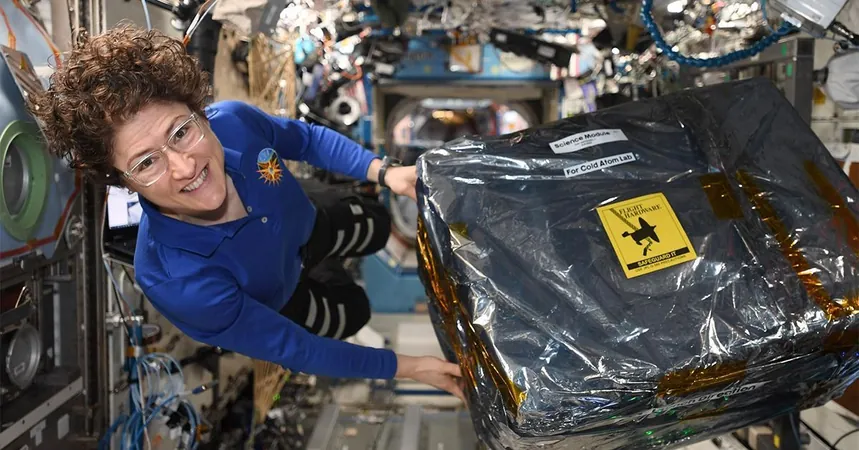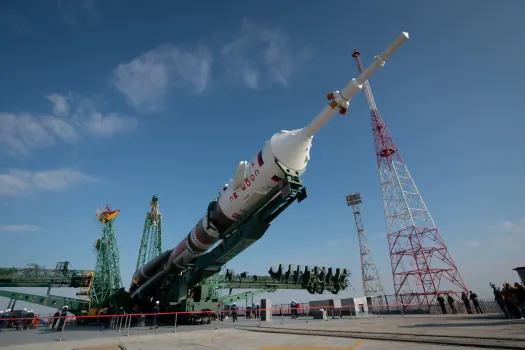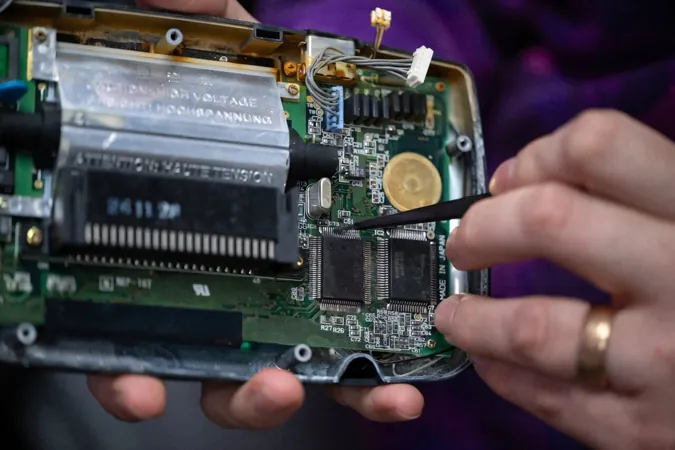
Boosting Astronaut Health: The Surprising Role of Microbes in Space
2025-04-01
Author: Mei
In an era where humanity is looking to conquer the cosmos, the health of astronauts becomes paramount—especially as they embark on long-duration missions. While most of us may never journey into the great unknown, space exploration has profoundly influenced our understanding of human health and medicine. The unique environment of space allows scientists to conduct experiments that are simply not possible on Earth, leading to groundbreaking discoveries in drug development, the design of innovative medical devices, and insights into aging and various biological processes.
However, astronaut health comes with challenges. Living aboard the International Space Station (ISS) can lead to a host of health issues: from immune dysfunction to skin conditions that can hurt mission productivity and safety. This raises crucial questions about how to protect the health of astronauts during their cosmic adventures.
Recent research from the University of California, San Diego, as published in the journal Cell, sheds intriguing light on these health challenges and offers potential solutions. By analyzing samples from 803 surfaces across the ISS—an effort that dwarfs previous studies—the researchers have begun to map out the microbial landscape within the station.
The study revealed that the ISS hosts a less diverse range of microbial communities compared to environments on Earth, resembling conditions found in sterile places like hospitals or urban homes. Notably absent were the free-living environmental microbes that could normally be found in soil and water, while many of the identified microbes were linked to human skin.
This lack of microbial diversity might be a contributor to the inflammatory conditions that astronauts face, as their immune systems may not be sufficiently challenged in such a controlled environment. The researchers speculate that by intentionally introducing a broader range of microbes to the ISS, astronauts' overall health may improve.
"Imagine the difference between the exposure from healthy soil while gardening and the confined space of staying in an unventilated room. The latter gives the impression of 'stewing in our own filth', which is akin to what happens in a closed environment with little microbial input," says co-author Rob Knight, Ph.D., who has received notable recognition for his contributions to microbiome research.
The future of space health might hinge on how we manage microbial diversity. The researchers envision refining their analysis techniques to identify harmful microbes and better understand the signals of human health through environmental metabolites. This research doesn't just hold promise for space travelers; the solutions developed could also improve health outcomes for individuals living and working in sterile environments on Earth, such as in hospitals, submarines, and even isolated research stations.
As humanity pushes the boundaries of space exploration, harnessing the power of microbes could be key to ensuring that our astronauts remain healthy and ready for the challenges that lie ahead. The implications of this research extend far beyond the ISS and could revolutionize our approach to health in various closed environments both in space and here on Earth.



 Brasil (PT)
Brasil (PT)
 Canada (EN)
Canada (EN)
 Chile (ES)
Chile (ES)
 Česko (CS)
Česko (CS)
 대한민국 (KO)
대한민국 (KO)
 España (ES)
España (ES)
 France (FR)
France (FR)
 Hong Kong (EN)
Hong Kong (EN)
 Italia (IT)
Italia (IT)
 日本 (JA)
日本 (JA)
 Magyarország (HU)
Magyarország (HU)
 Norge (NO)
Norge (NO)
 Polska (PL)
Polska (PL)
 Schweiz (DE)
Schweiz (DE)
 Singapore (EN)
Singapore (EN)
 Sverige (SV)
Sverige (SV)
 Suomi (FI)
Suomi (FI)
 Türkiye (TR)
Türkiye (TR)
 الإمارات العربية المتحدة (AR)
الإمارات العربية المتحدة (AR)